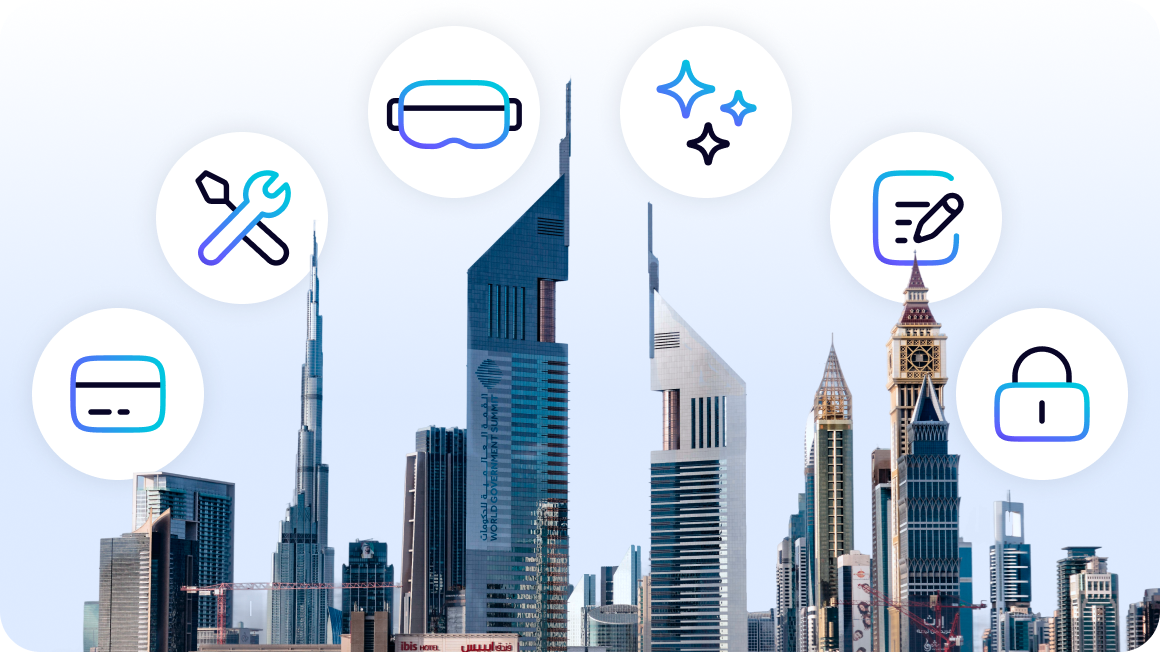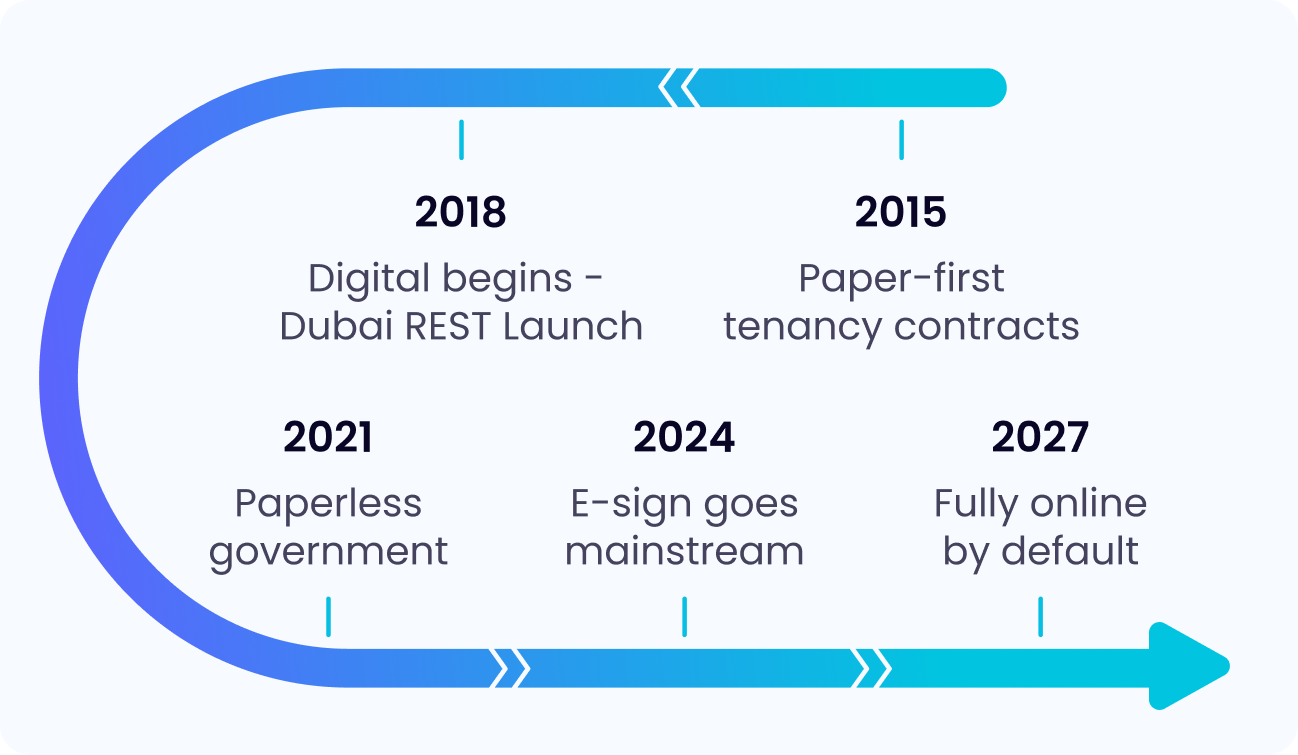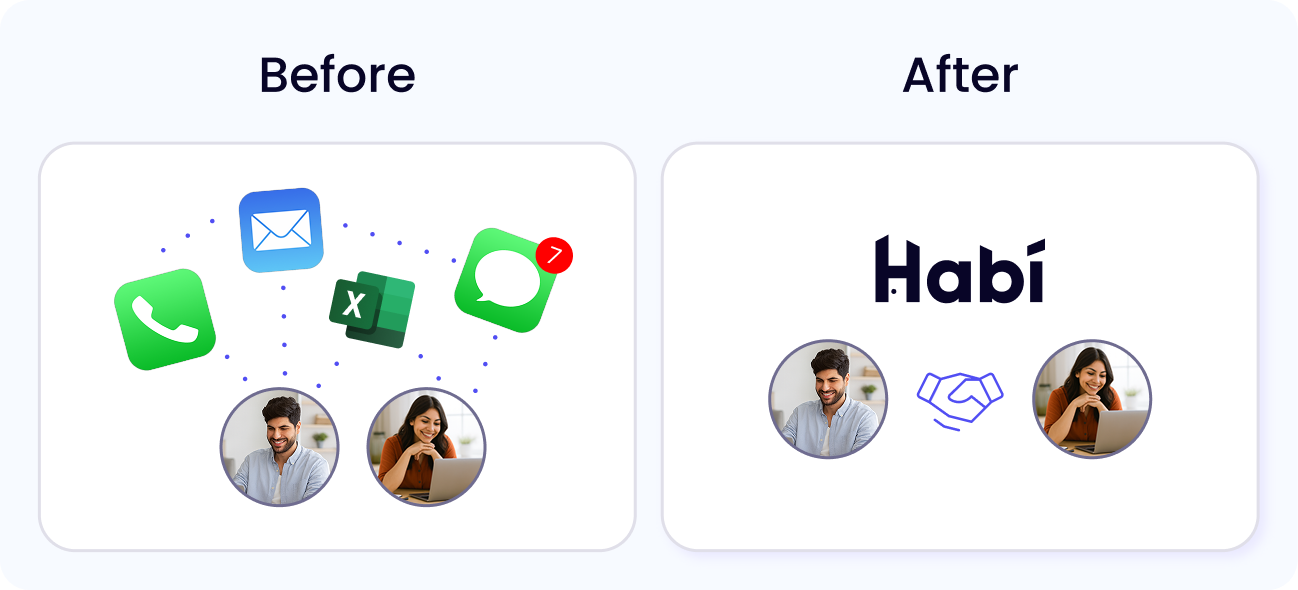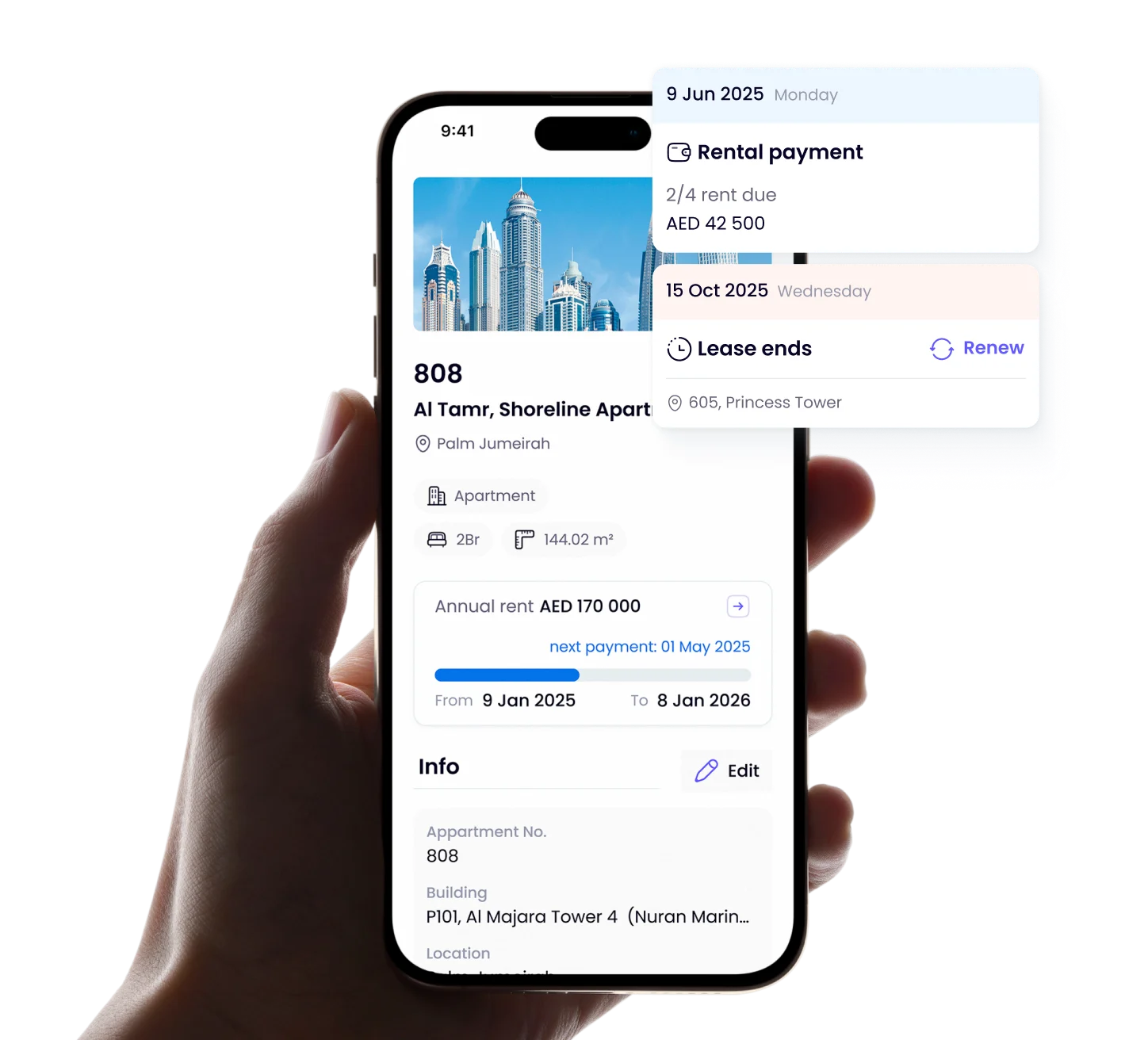February 23, 2026

The long-term rental market is experiencing a significant shift toward digital integration. This movement is global, with certain markets leading the adoption of new technologies. Dubai stands out as one of the most proactive regions in this digital evolution. The government has implemented several programs to encourage technological development within the real estate sector, aiming to modernise operations. Initiatives such as the Real Estate Evolution Space (REES) exemplify this push toward a fully digital framework.
In 2025, a new wave of technological advancements is defining the interactions between landlords and tenants.
The focus is on simplicity, security, and transparency — making renting smoother for everyone involved.
The international rental market is adopting a suite of digital tools designed to increase efficiency and reduce administrative burdens. These are the key trends expected to be standard in 2025.
Virtual tours have become a standard expectation for tenants, often paired with smart lock systems. These systems allow a prospective tenant to view a property without an agent present and provide secure, temporary access codes for move-in, eliminating the need for physical key exchanges.
Landlords and property managers are increasingly using artificial intelligence to process rental applications. By analyzing credit history, income verification, and rental background checks, AI tools provide landlords with quick, data-backed assessments of potential tenants.
The entire leasing process is becoming paperless. Platforms that generate legally compliant leases are now common. These systems facilitate remote review and electronic signatures, allowing a tenancy contract to be signed anytime, anywhere — no printing or scanning required.
The manual process of collecting rent via cash or cheque is being replaced by automated systems. Tenants can authorise recurring payments through bank transfers or credit cards - as a result tenants pay on time, and landlords get reliable tracking with minimal effort.
Smart valuation tools are helping landlords set accurate prices based on real-time market data. These platforms analyse vast amounts of local market data to suggest optimal listing prices. Some systems even adjust listings dynamically, responding to demand shifts.
Dedicated mobile applications have become the primary channel for tenants to report maintenance issues. These apps simplify communication, allow for photo uploads, and enable landlords or managers to track repairs from start to finish. Faster communication means faster resolutions.
While global trends influence Dubai's rental market, the city is also driving its own unique initiatives fuelled by a progressive government approach. Several key advancements are shaping long-term rentals in Dubai in 2025:
The Ejari system, the official tenancy registration framework with the Dubai Land Department (DLD), has evolved into a fully integrated digital process. Tenancy platforms guide users through Ejari registration online from start to finish, making a once time-consuming step quick and seamless.
The use of digital platforms for automated lease creation in UAE is no longer optional in the UAE — it’s the new normal. The adoption of digital lease signing procedures by landlords and tenants is widespread, supported by platforms that ensure contracts meet all regulatory standards for the tenancy contract online.

A defining feature of Dubai’s market is the deep integration between private rental platforms and government services. Once a tenancy contract is signed digitally, data can be shared directly with systems like the DLD for Ejari and with utility providers like DEWA for connection requests, creating a unified and efficient administrative workflow.
The market is moving away from post-dated cheques toward digital transfers and card payments. This shift makes life easier for international tenants and helps landlords manage cash flow with less uncertainty.
Comprehensive platforms that manage the entire rental lifecycle from listing to lease signing, Ejari registration and maintenance are becoming the standard. Platforms like Habi consolidate all steps into a single digital experience, significantly reducing the time and effort required to secure and manage long-term rentals in Dubai.

Dubai’s rental sector is aligning with global digital trends while building a uniquely advanced system of its own. The integration of mandatory processes like Ejari into private digital platforms creates a streamlined flow that is particularly advanced.
The result of these innovations is a market that benefits all participants. For landlords, this means faster processing times, increased transparency and efficient management. For tenants, it brings lower administrative costs and greater convenience throughout the rental lifecycle.
The continued development of this digital infrastructure is establishing a new standard for rental markets worldwide.
The primary benefit is increased efficiency and saving money for both landlord and tenant. Digital processes reduce the time required for administrative tasks like signing contracts, registering agreements, and processing payments for both sides.
Yes, electronic signatures are legally binding in the UAE. This is confirmed by Federal Decree-Law No. 46 of 2021 on Electronic Transactions and Trust Services
The best source is the Dubai Land Department (DLD) website, which provides details on all its digital services, including Ejari.
Track income, monitor vacancies, and get automated reminders for key tenancy events on Habi

